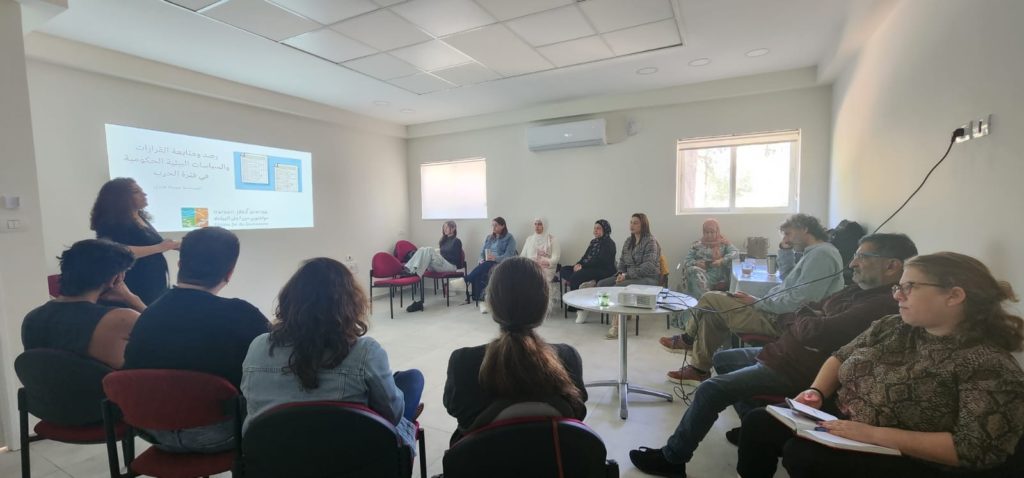The Environmental Impacts of the War | Jameela Hardal
In November 2023, as part of the “Agents of Change in the Field of Environmental and Climate Justice” course (a collaboration between the School for Peace and Citizens for the Environment) Attorney Jameela Hardal spoke with participants about the destructive effects of wars on the climate and environment. Wars, she said, are among the most destructive forces threatening humanity – not only due to the direct killing of people and the destruction of their lives, but also due to the serious damage they bring upon the earth’s resources, including the direct pollution of air, soil and water as a result of toxic gasses, chemicals and waste, the emission of greenhouse gasses that worsen the climate crisis, and the destruction of the natural environment in the affected areas, all while creating often irreversible environmental and ecological damage.
Attorney Hardal also referred to the way governments tend to exploit tumultuous times of war to pass problematic resolutions that otherwise would have been met with resistance. Indeed, atty Hardell provided an overview of a number of problematic resolutions the government passed regarding environmental and climate issues while disregarding environmental considerations and the public interest and using the guise of war and “security considerations” to justify their choices.
One such example is the resolution to authorize the Europe Asia Pipeline Company (EAPC) to exceed the set oil transportation limit of 2 million tons per year. Such a resolution is an explicit breach of the zero-risk policy instituted by the previous government which aimed to minimize the environmental threats to the Gulf of Eilat latent in the oil agreement between EAPC and the Emirati Red-Med company.
Another example involves the granting of 12 licenses to 6 companies, enabling them to search for natural gas off the coast of the Mediterranean. The timing of the meeting where this decision was discussed, held by the Israeli Petroleum Council, is a clear exploitation of the current war period, and contradicts the emergency government’s decision not to decide on issues unrelated to the war. This especially since the issue of gas drilling in water is considered a controversial issue, and not just due to its impact on the climate and environment.
Atty. Hardal also spoke about the more localized effects of the war on environmental issues, including in towns and communities that are supposedly not directly affected by the war. Mapping research carried out by Citizens for the Environment found that the proper functioning of sanitation and environmental departments was compromised in about 60% of the local Arab municipalities due to the war. In 56% of these municipalities, there was a reduction in waste collection services due to budgetary shortages, a shortage in workers, an increase in the amount of waste, termination by the contractor, or an increase in prices.

